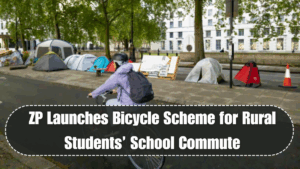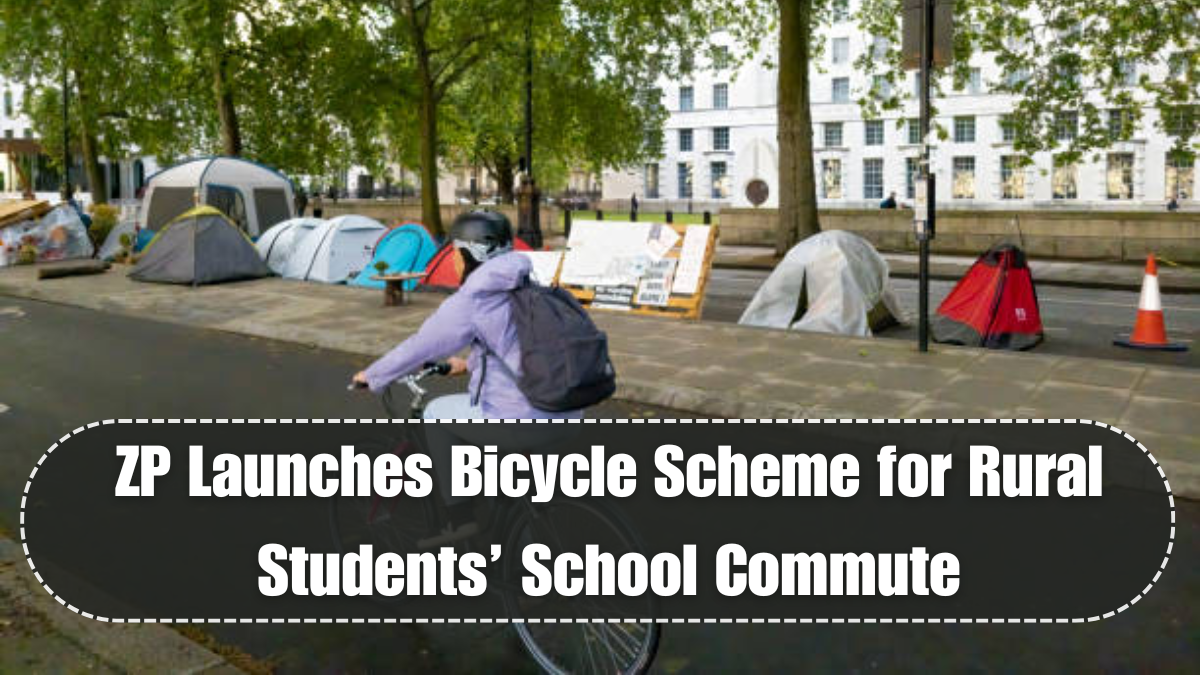Zilla Parishad (ZP) authorities have officially launched a large-scale bicycle to school initiative aimed at helping students from remote and tribal areas access education with ease. Under this scheme, hundreds of school-going children in rural Maharashtra will receive free bicycles to support their daily school commute. This move directly addresses long-standing challenges related to distance, affordability, and safe travel.
The bicycle program is part of a larger rural development framework that includes transport equity and student welfare. Starting July 2025, ZP has begun the first round of distribution in hilly and backward regions where students often walk more than 5 kilometers each way to attend school. The initiative is being welcomed by both students and parents as a timely and much-needed intervention for better rural mobility.

School commute made easier with free bicycle distribution
Under this bicycle to school initiative, every eligible student from classes 6 to 10 residing more than 3 km from their school will receive a government-funded bicycle. These bicycles are built with sturdy frames, puncture-resistant tires, and easy-maintenance parts, designed specifically for rough terrain.
The school commute time for many students is expected to be cut by half, reducing fatigue and increasing class attendance. Teachers have already reported improvements in punctuality and concentration among students who were part of the early pilot phase of the bicycle program.
Rural mobility gets a sustainable boost
With this scheme, the government aims to improve rural mobility by offering a clean, affordable, and efficient transport solution. The use of bicycles ensures zero fuel dependency and instills a sense of independence in young students. Parents, especially in farming households, are relieved of the daily burden of arranging private or shared transportation for their children.
The bicycle to school initiative is also part of the state’s broader eco-friendly push, encouraging schools and communities to reduce reliance on motor vehicles for short-distance travel. Maintenance workshops and awareness sessions will also be held in each block to ensure students learn how to take care of their bicycles.
Implementation and monitoring at district level
ZP has deployed block-level officers to oversee the bicycle program, ensuring transparency in allocation and reporting. Schools are instructed to maintain a logbook of distributed bicycles and report monthly updates on usage and impact. In case of theft or damage, replacement and repair services will be available under a support clause.
The Education Department has also tied up with local NGOs to host quarterly rural mobility awareness camps, where students will be educated about road safety, bicycle handling, and minor repairs. Feedback is being collected regularly from teachers, parents, and students to improve the implementation process.
Table: Key Features of the Bicycle to School Initiative
| Feature | Description | Impact |
|---|---|---|
| Target Students | Classes 6–10, distance >3 km from school | Direct commute improvement |
| Bicycle Type | Single-speed, durable for rough roads | Long-term usability |
| Distribution Timeline | July to September 2025 | Phase-wise rollout |
| Maintenance Support | Local vendors and school-level checkups | Free repair in first 6 months |
| Monitoring & Feedback System | Monthly reporting by schools | Ensures accountability |
FAQs
What is the bicycle to school initiative?
It is a bicycle program by ZP to provide free bicycles to rural students for improving their daily school commute.
Who is eligible to receive a bicycle?
Students from classes 6–10 living more than 3 km away from school are eligible under the bicycle to school initiative.
How does this help in rural mobility?
It provides an eco-friendly, cost-free, and efficient means of transport, especially in remote areas with limited vehicle access, supporting rural mobility.
What kind of bicycles are provided?
The bicycles are designed for rugged terrain with steel frames, good brakes, and low-maintenance parts to withstand tough rural roads.
Is maintenance included in the program?
Yes, the bicycle program includes a basic repair and replacement support system through local vendors and NGOs during the first 6 months.
